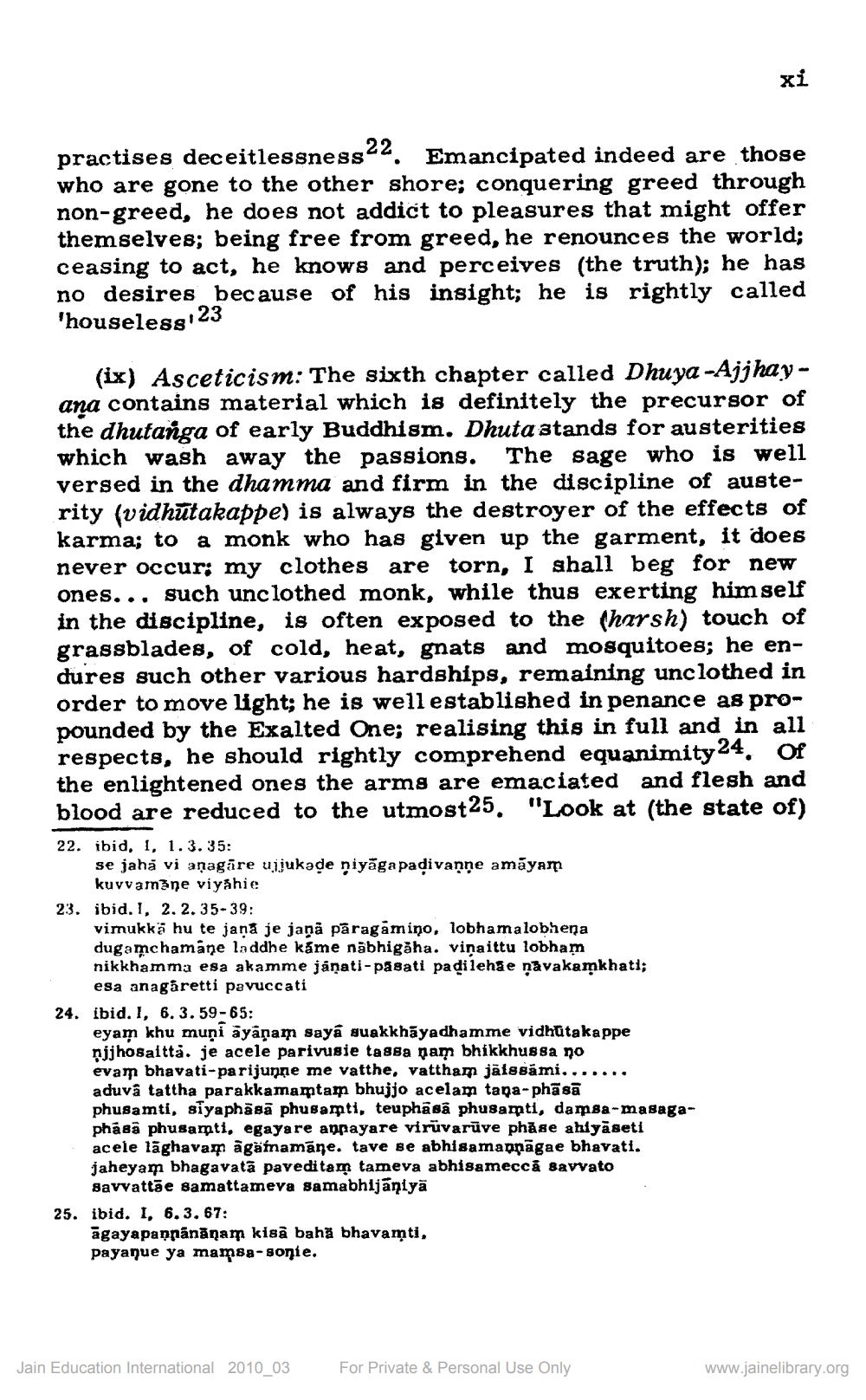________________
22. practises deceitlessness' Emancipated indeed are those who are gone to the other shore; conquering greed through non-greed, he does not addict to pleasures that might offer themselves; being free from greed, he renounces the world; ceasing to act, he knows and perceives (the truth); he has no desires because of his insight; he is rightly called 'houseless 23
(ix) Asceticism: The sixth chapter called Dhuya -Ajjhayana contains material which is definitely the precursor of the dhutanga of early Buddhism. Dhuta stands for austerities which wash away the passions. The sage who is well versed in the dhamma and firm in the discipline of austerity (vidhutakappe) is always the destroyer of the effects of karma; to a monk who has given up the garment, it does never occur: my clothes are torn, I shall beg for new ones... such unclothed monk, while thus exerting himself in the discipline, is often exposed to the (harsh) touch of grassblades, of cold, heat, gnats and mosquitoes; he endures such other various hardships, remaining unclothed in order to move light; he is well established in penance as propounded by the Exalted One; realising this in full and in all respects, he should rightly comprehend equanimity 24. Of the enlightened ones the arms are emaciated and flesh and blood are reduced to the utmost25. "Look at (the state of)
22. ibid, I, 1.3.35:
se jahā vi aṇagāre ujjukade niyaga padivanne amāyam kuvvamane viyahie
23. ibid. 1, 2.2. 35-39:
vimukka hu te jana je jaņā pāragāmiņo, lobhamalobheṇa dugamchamane laddhe kame nabhigäha. viņaittu lobham nikkhamma esa akamme janati-pasati padilehae navakamkhati; esa anagaretti pavuccati
24. ibid. 1, 6.3.59-65:
eyam khu muņi āyāņam saya suakkhāyadhamme vidhutakappe njjhosaittà. je acele parivusie tassa nam bhikkhussa no evam bhavati-parijuņne me vatthe, vattham jāissāmi.... aduva tattha parakkamamtam bhujjo acelam tana-phāsā phusamti, siyaphāsā phusamti, teuphasã phusamti, damsa-masagaphasã phusamti, egayare appayare virüvarüve phase ahiyaseti acele laghavam āgāmamāņe. tave se abhisamappāgae bhavati. jaheyam bhagavatā paveditam tameva abhisamecca savvato Savvattae samattameva samabhijāṇlyā
25. ibid. I, 6.3.67:
agayapanṇānāṇam kisā baha bhavamti, payanue ya mamsa-sonie.
xi
Jain Education International 2010_03
For Private & Personal Use Only
www.jainelibrary.org




